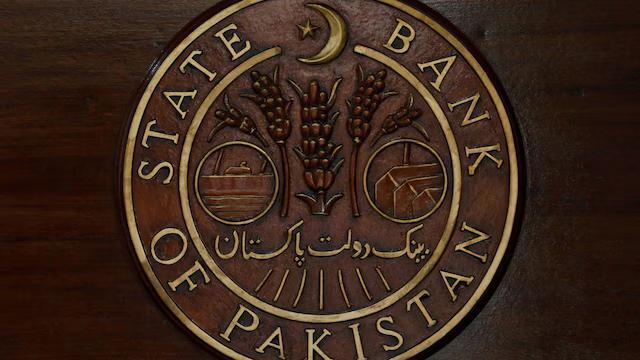
IMF asks Pak to remove Finance Secy from central bank board: Report
The International Monetary Fund (IMF) has reportedly asked the Pakistan government to remove the Finance Secretary from the board of the State Bank of Pakistan (SBP), the country’s central bank. The request is part of a series of recommendations made by the IMF to strengthen the country’s financial institutions and ensure the effective implementation of the ongoing financial bailout package.
According to a report by Moneycontrol, the IMF has also suggested amending a law that gives the government the power to order inspections of commercial banks. The aim of this recommendation is to curb the government’s influence over the banking sector and ensure that the central bank is able to operate independently.
The IMF has also asked the Pakistani government to fill two vacancies for deputy governor’s posts at the SBP immediately. This is seen as an effort to strengthen the central bank’s decision-making process and ensure that it is better equipped to tackle the country’s economic challenges.
Pakistan has been facing a severe economic crisis in recent years, with a ballooning current account deficit, a depreciation of the rupee, and a surge in inflation. The country has been relying on the IMF for financial support to address its economic woes, and the Fund has been providing Pakistan with a series of bailouts since 2013.
The IMF’s latest set of recommendations is aimed at addressing some of the key concerns that the Fund has been expressing about Pakistan’s economy. One of the main concerns is the lack of transparency and accountability in the country’s financial institutions. The government’s influence over the banking sector and the central bank’s autonomy are also major areas of concern.
The IMF’s request to remove the Finance Secretary from the SBP board is seen as an effort to address these concerns. The Finance Secretary is a senior official in the Finance Ministry, and his presence on the SBP board has been seen as a potential conflict of interest. The IMF has been arguing that the central bank should be independent and free from political interference, and the removal of the Finance Secretary from the board is seen as a step towards achieving this goal.
The IMF’s suggestion to amend the law that gives the government the power to order inspections of commercial banks is also aimed at addressing concerns about the government’s influence over the banking sector. The law has been seen as a way for the government to exert pressure on banks to achieve its political and economic goals, rather than ensuring that banks operate independently and free from interference.
The IMF’s request to fill the vacancies for deputy governor’s posts at the SBP is also seen as an effort to strengthen the central bank’s decision-making process. The SBP has been operating with a reduced number of deputy governors, which has limited its ability to take effective decisions. The IMF has been arguing that the central bank needs to be strengthened to address the country’s economic challenges, and the filling of the vacancies is seen as a step towards achieving this goal.
Pakistan’s Finance Minister, Dr. Abdul Hafeez Shaikh, has not commented on the IMF’s latest set of recommendations. However, sources within the Finance Ministry have said that the government is considering the IMF’s suggestions and is likely to implement them in the coming weeks.
The IMF’s recommendations come at a time when Pakistan is facing a severe economic crisis. The country’s currency has depreciated by over 30% in the past year, and inflation has risen to over 10%. The country’s current account deficit has also widened to over $18 billion, which is a major concern for the government.
The Pakistani government has been trying to address the economic crisis by implementing a series of austerity measures, including reducing government spending and increasing taxes. However, the country’s economic woes are expected to continue in the coming months, and the government is likely to need further financial support from the IMF to address the crisis.
In conclusion, the IMF’s request to remove the Finance Secretary from the SBP board, amend the law that gives the government the power to order inspections of commercial banks, and fill the vacancies for deputy governor’s posts at the SBP are aimed at strengthening Pakistan’s financial institutions and ensuring the effective implementation of the ongoing financial bailout package. The Pakistani government is likely to implement these recommendations in the coming weeks, and the country’s economic future will depend on its ability to address its economic challenges and implement the IMF’s recommendations effectively.



